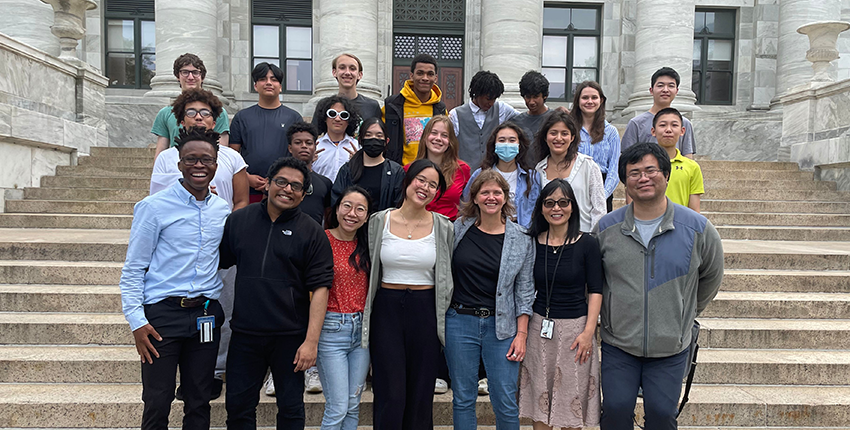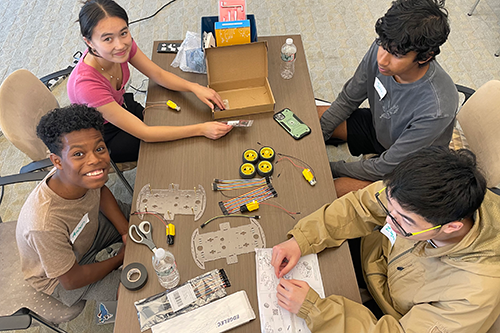Data Science in Action: Self-Driving Cars
High school students experience the challenges and opportunities in machine learning
High school students experience the challenges and opportunities in machine learning

 The 2023 CELEHS/HMS Data Science in Action Summer Program introduces students to machine learning (ML) and programming through a project in which they program ML algorithms to recognize images and make a self-driving toy car. Co-directed by DBMI's Tianxi Cai, the program's mission is to give young students from diverse backgrounds access to quality education and opportunities to learn about artificial intelligence (AI)/ML. This year the experience gave 28 students a taste of some of the challenges and opportunities in machine learning, and some of the ways it is being applied across diverse fields in academic research and industry.
The 2023 CELEHS/HMS Data Science in Action Summer Program introduces students to machine learning (ML) and programming through a project in which they program ML algorithms to recognize images and make a self-driving toy car. Co-directed by DBMI's Tianxi Cai, the program's mission is to give young students from diverse backgrounds access to quality education and opportunities to learn about artificial intelligence (AI)/ML. This year the experience gave 28 students a taste of some of the challenges and opportunities in machine learning, and some of the ways it is being applied across diverse fields in academic research and industry.
Students participate in teams, working together on programming exercises that range from introductory coding tasks to image classification. Each team receives a laptop, a Raspberry Pi, and materials to construct the toy car. Teaching assistants provide hands-on programming and technical support throughout the camp, with additional tutorials via YouTube.
For the final presentation demo, the students take pictures of physical objects ranging from bottles to backpacks and train their own classification algorithms—including layered algorithmic series known as neural networks—to recognize these objects. Once they achieve high-quality performance, they install their program into a toy car equipped with a camera which allows it to "see" the objects and drive itself. Three teams in San Jose, CA, and four teams in Boston, MA, presented their cars this summer.
“Our main goal is to provide high-quality exposure to data science and machine learning to students who otherwise would not have that resource.”
© 2024 by the President and Fellows of Harvard College